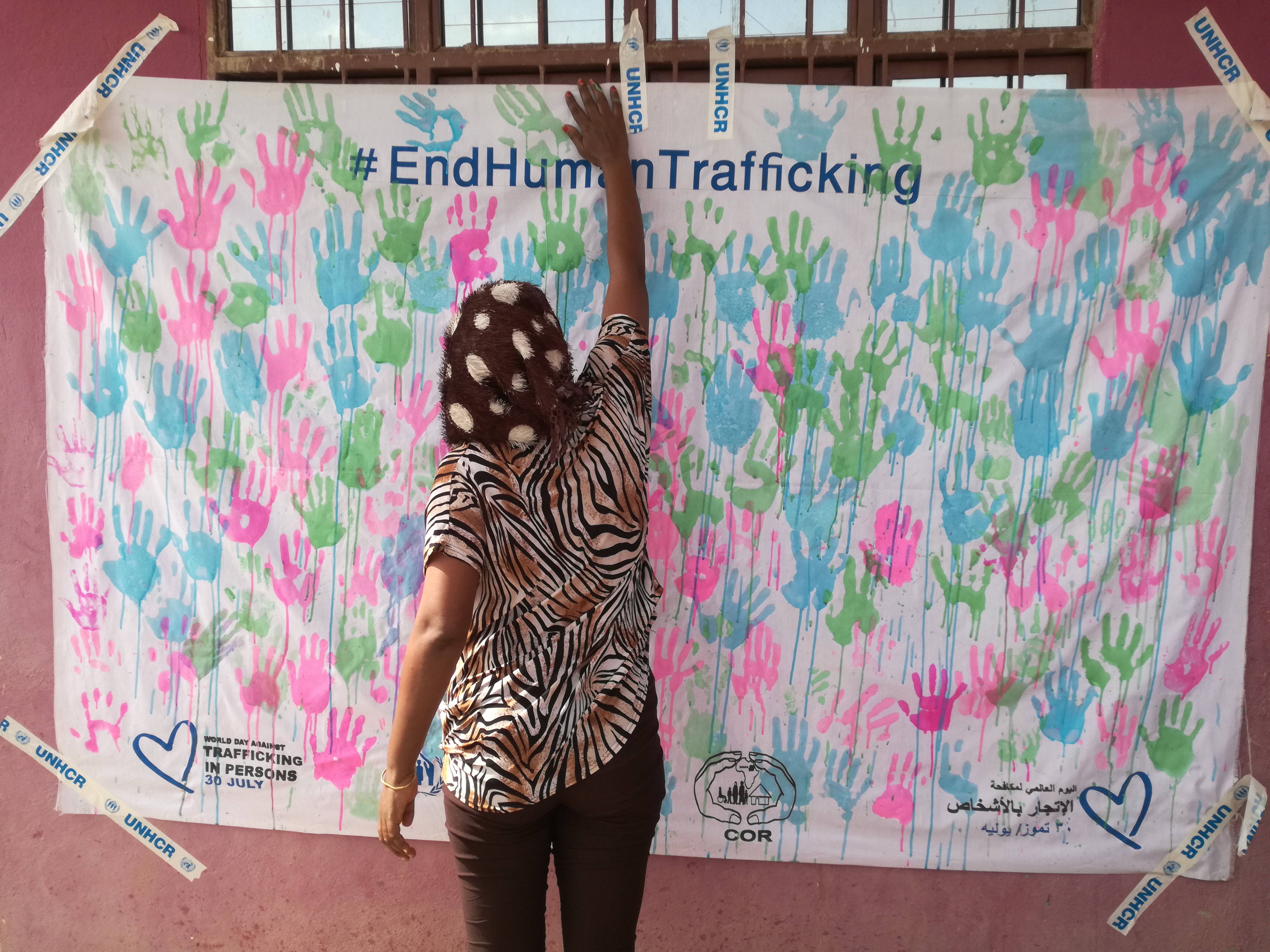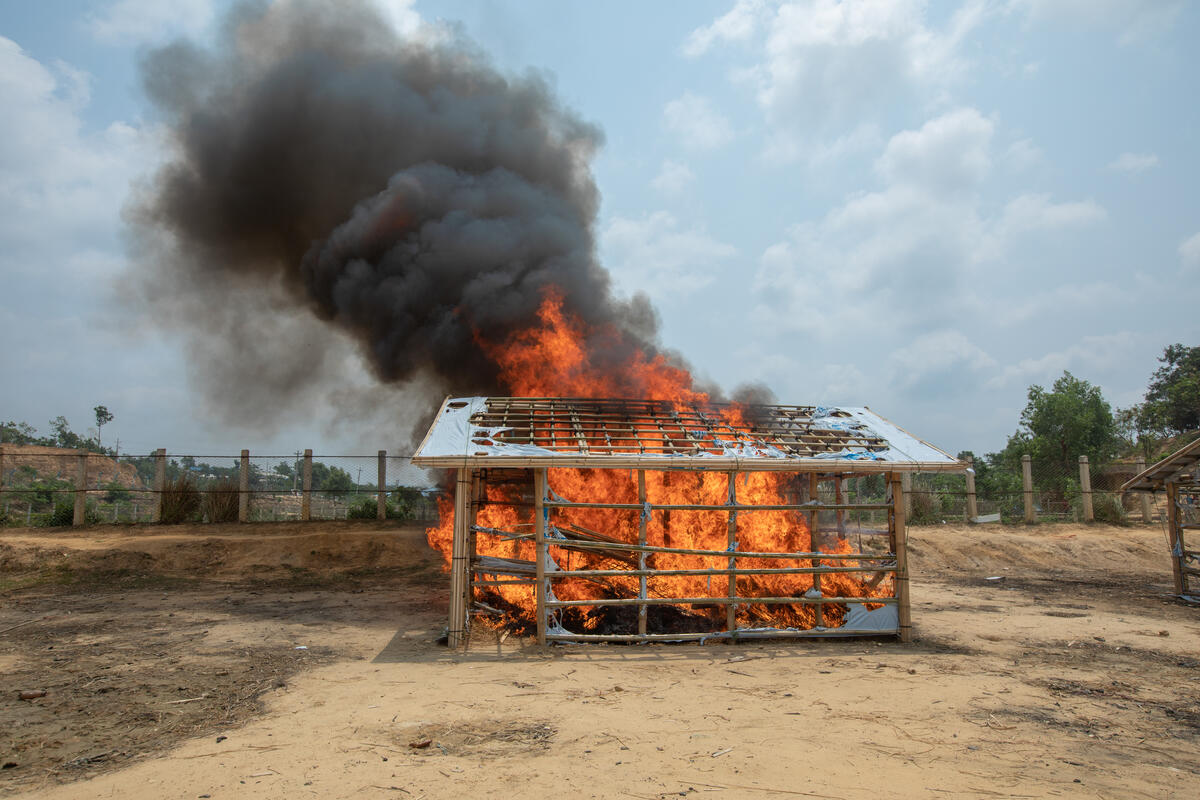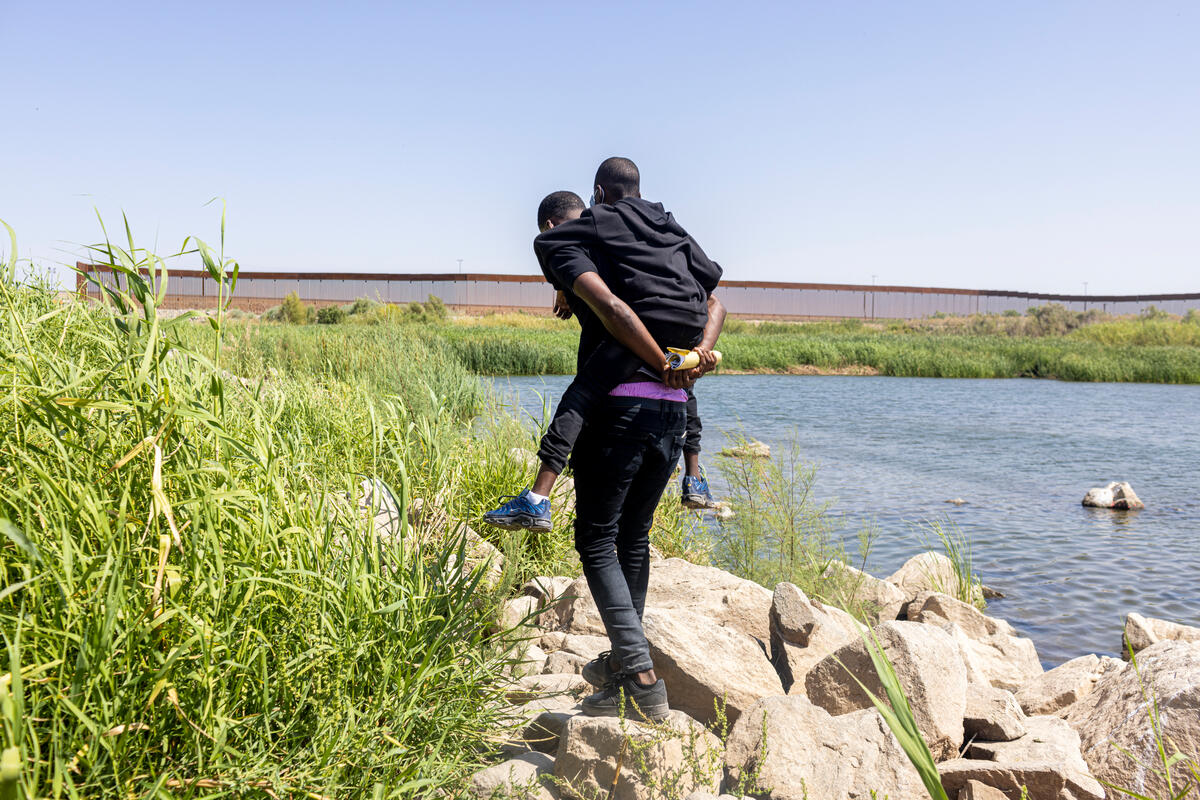Deadly trade through Niger snares refugees and migrants
Deadly trade through Niger snares refugees and migrants

AGADEZ, Niger – Daniel knows well the dangers of the route to Libya. As he recalls his journey from his native Cameroon, the details spill out in a staccato of words, fidgets and sideways glances, an occasional smile dashing across his face. It is not excitement, but despair, that drives the constant movement.
He is a man used to being on the move. The 26-year-old left his homeland earlier this year with his twin brother and uncle, aiming to reach Libya, then Europe. But for the trio, as for untold thousands of others, the trip went badly wrong as they fell into the hands of ruthless smugglers.
“When we reached Libya, the driver told us we had to pay another 1,500 dinars (US$1,100) per person, so 4,500 dinars for all three,” he says. “We didn’t have any more money. We tried to explain the situation, but they didn’t want to hear it.”
So for lack of pay-off money, the three were thrown into one of Libya’s informal detention centres, Daniel says, and beaten with weapons.
“We were tortured, kept in a compound where other passengers were allowed to go out, but not us since they thought we might escape,” he explains.
He was then taken back here, to neighbouring Niger, where he was bound into forced labour by his Libyan captors, while his family remained hostage across the border. When they finally released him, two months later, he had no money, nowhere to call home, and a ransom demand to pay.
Daniel’s harrowing journey took him along a centuries-old caravan trail to the Mediterranean, and left him at one of its crossroads – Agadez.
Once a hub in the trade in gold and salt, the low-slung labyrinth of ochre-walled compounds on the southern edge of the Sahara desert is now a centre in a dangerous trade in guns, drugs and, above all, people. In 2016 some 330,000 people crossed to Libya from Niger, mostly through Agadez, including about a quarter of them from Niger itself.
In 2015, largely in response to pressure from EU governments, Niger began cracking down on operators helping those travellers, mainly from West and Central Africa, cross into Libya. In return, the EU has offered more than €2 billion in aid to help the region – also including other priority African countries – on issues ranging from security to economic development.
While the numbers of people transiting through Agadez has dropped since the crackdown began, some observers say it is simply forcing the business of people smuggling underground, making the illicit trade even riskier.
Smugglers are taking alternative routes that are less well known – and charging higher prices for their services. Those who call themselves “migration service providers” in Agadez also say their business of transporting people is now attracting more criminal traffickers who also transport drugs and weapons.
"Irrespective of the status ... we are telling people it is dangerous to go to Libya."
Groups of migrants have been abandoned in the desert – some deliberately, others when a smuggler’s vehicle breaks down. Sometimes they are rescued but unknown numbers have died – and some estimate the figures of those who have perished en route in the deserts of Niger and in Libya are higher than the figures of those lost at sea heading to Europe.
Across the border in Libya, a whole host of other threats await. The country, in the throes of civil and political upheaval, has simply become a “machine that destroys humans,” said Vincent Cochetel, UNHCR’s Special Envoy for the Central Mediterranean Situation, during a visit to Niger last week.
“Irrespective of the status of people – whether they are economic migrants or refugees – we are telling people it is dangerous to go to Libya. People disappear. People are killed in the desert, much more than the people being killed in the Mediterranean trying to cross to go to Europe," he said.
Most of those who risk this desperate journey have been considered migrants, but analysis by UNHCR, the UN Refugee Agency, shows that about 30 per cent of those who take migration routes through Niger could qualify for protection, including humanitarian status, once they reach Europe. Thus, tens of thousands of people traumatized by war, political persecution and terrorism go headlong into more danger.

“It’s something I’ve learned during this trip to Agadez, from testimonies we’ve heard from people,” said Cochetel. “Everybody has seen people dying in front of them in detention centres ... either in the hands of militias, or smugglers and traffickers. Everyone has had that experience … So we’re telling people it’s for your own protection. It’s dangerous to be there. There are solutions on the way.”
UNHCR has stepped up its operations in Niger, both to identify and protect vulnerable people of concern, and to help the Niger government to improve its capacity for determining asylum claims. It is also working closely with its partner, the International Organization for Migration, to reach out to people who may have fled war or persecution, to let them know that asylum is possible in Niger.
"I know that I’ve done my part as a Christian – warning them about what happens out there.”
As part of a wider drive to tackle the root causes of displacement, the UN Refugee Agency continues to offer its support to governments to seek lasting political solutions to the conflicts that provoke humanitarian crises in the region and worldwide.
After two months Daniel was released by his captors onto the streets of Agadez. There he has found some solace in the city’s tiny Catholic parish and its priest, Father Pascal, who ministers to many migrants and refugees. Daniel has found the courage to voice his story and deliver a message to those who will listen.
“I’ve met other people here who want to go to Libya,” he said. “I told them about what I’ve gone through. I don’t know if they’ve gone anyway or not. That’s up to them. But I know that I’ve done my part as a Christian – warning them about what happens out there.”









